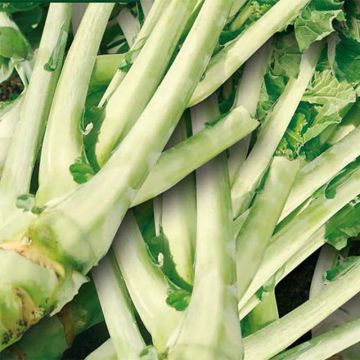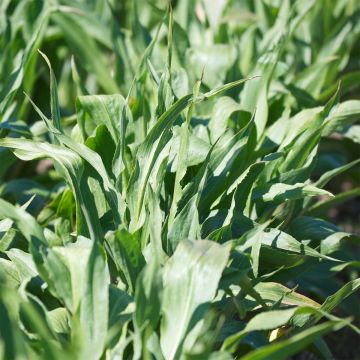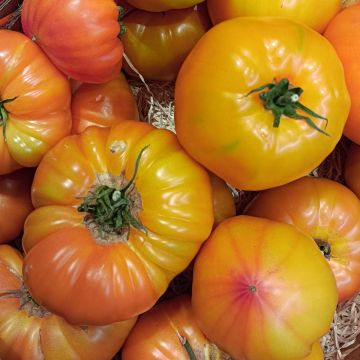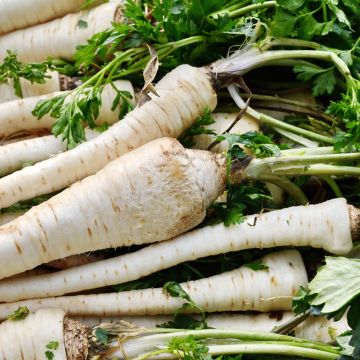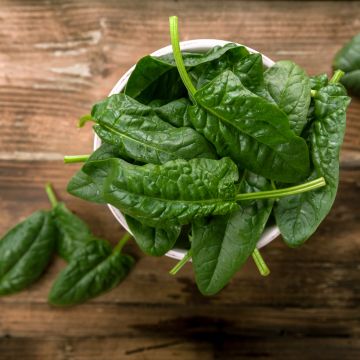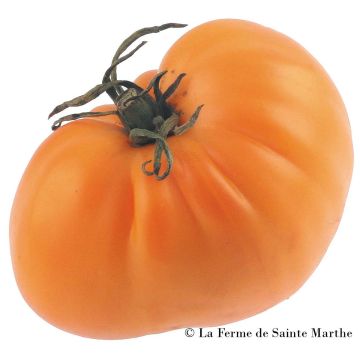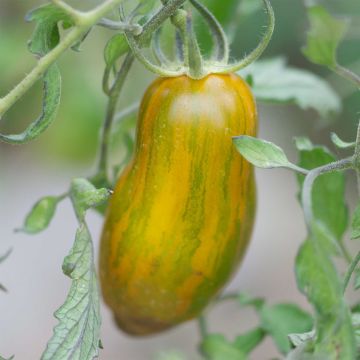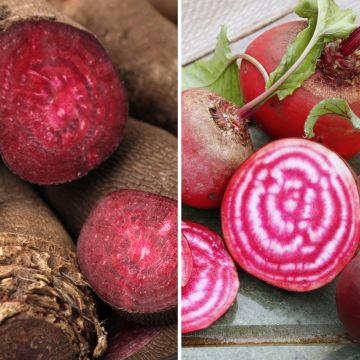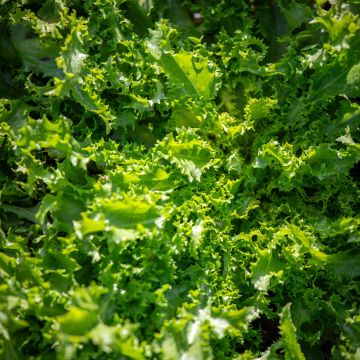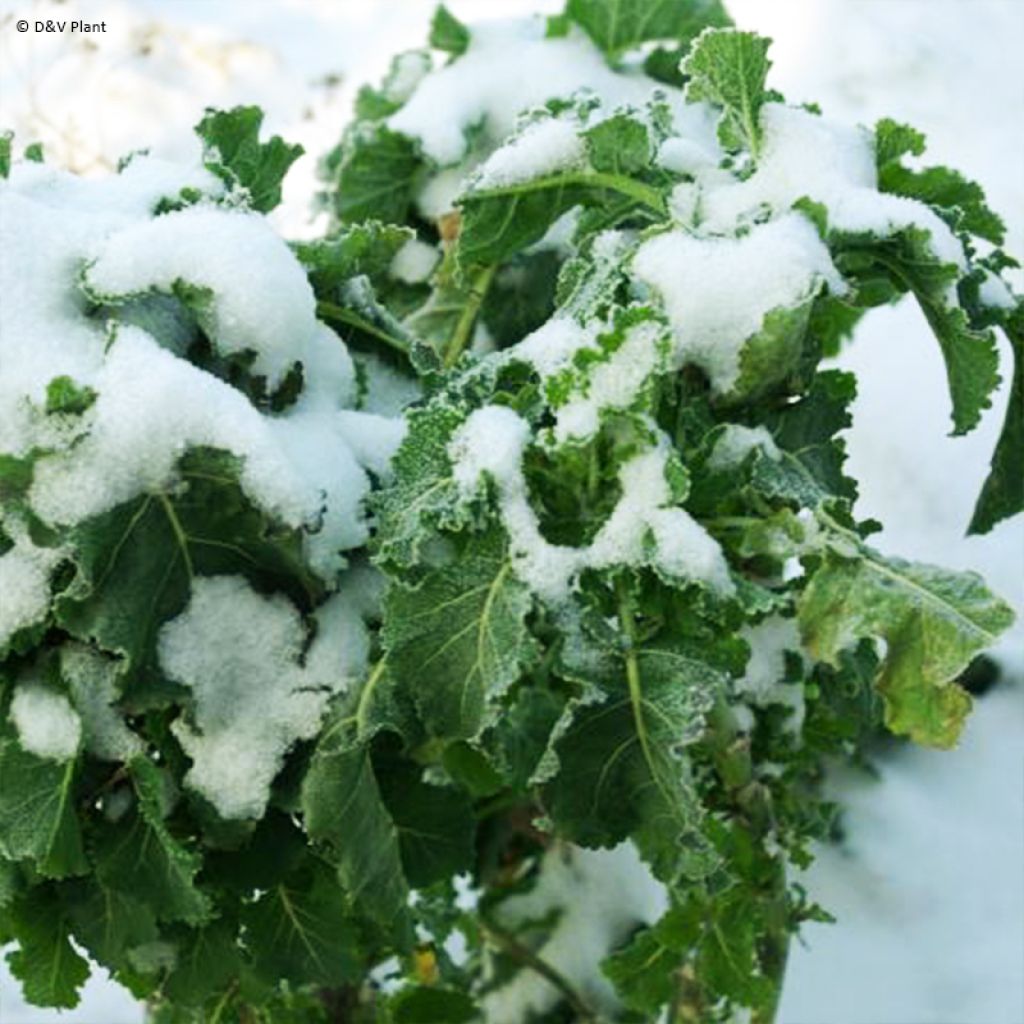

Chou perpétuel Daubenton en plant - Brassica oleracea ramosa
Daubenton's Perpetual Cabbage plant - Brassica oleracea ramosa
Brassica oleracea ramosa Daubenton
Daubenton Kale
Cabbages arrived in perfect condition and immediately planted: now it's just a matter of waiting!
Cat Ing, 19/11/2024
Special offer!
Receive a €20 voucher for any order over €90 (excluding delivery costs, credit notes, and plastic-free options)!
1- Add your favorite plants to your cart.
2- Once you have reached €90, confirm your order (you can even choose the delivery date!).
3- As soon as your order is shipped, you will receive an email containing your voucher code, valid for 3 months (90 days).
Your voucher is unique and can only be used once, for any order with a minimum value of €20, excluding delivery costs.
Can be combined with other current offers, non-divisible and non-refundable.
Why not try an alternative variety in stock?
View all →This plant carries a 6 months recovery warranty
More information
We guarantee the quality of our plants for a full growing cycle, and will replace at our expense any plant that fails to recover under normal climatic and planting conditions.
Description
The perpetual Daubenton Kale, in Latin Brassica oleracea var. ramosa 'Daubenton', is a perennial cabbage that does not form a head and rarely flowers. It is cultivated for its young shoots which have a flavour similar to broccoli. They can be consumed raw or cooked and can be prepared in various ways. Hardy and not very susceptible to cabbage white butterflies and flea beetles, this cabbage is ideal for permaculture and can last for several years. As beautiful as it is tasty, Daubenton cabbage is an ancient vegetable that is making a comeback in vegetable gardens, as well as in flower beds. It can be easily grown in any rich, deep soil, even very clayey soil, without drying out in the summer.
Like other cabbages, perpetual cabbage belongs to the Brassicaceae family (formerly Cruciferae). It has a bushy habit over time, with the plant reaching about 90 cm (35in) in all directions. It is a perennial herbaceous plant, resistant to frost and evergreen in winter. Its lifespan is around 5 to 7 years. Perpetual cabbage does not form a head, but it produces lateral shoots. These young shoots have a taste similar to broccoli and can be consumed raw or cooked. They can be prepared in various ways: in gratins, soups, sauces, stir-fries, stews, or salads. In the vegetable garden, plant perpetual cabbage near mint or lettuce and keep it away from alliums and other cabbages. One remarkable advantage is that it is not very susceptible to cabbage white butterflies and flea beetles.
The stems of this cabbage easily branch out from the axils of the leaves, and over time, the plant forms a beautiful mass of bluish-green and frizzy leaves. The base of the stems becomes woody and hard with age. This Daubenton variety has the advantage of not flowering, which allows it to live for several years. Indeed, the wild form Brassica oleracea ramosa which flowers in its second year is a biennial plant that dies after producing its seeds.
Harvesting : from the 2nd year onwards, pick the shoots growing on the stems as needed, from September to May. However, the leaves will be the most tender in spring. Harvest regularly to promote a compact habit and the production of new leaves.
Storage : consume the leaves quickly after harvesting. However, you can store them in the refrigerator for a few days.
Gardener's tip : to limit watering, we recommend mulching the soil with thin layers of grass clippings, if possible mixed with dead leaves. This protection, which keeps the soil moist, provides nitrogen to the plant as it decomposes while also reducing the need for weeding.
Report an error about the product description
Daubenton's Perpetual Cabbage plant - Brassica oleracea ramosa in pictures
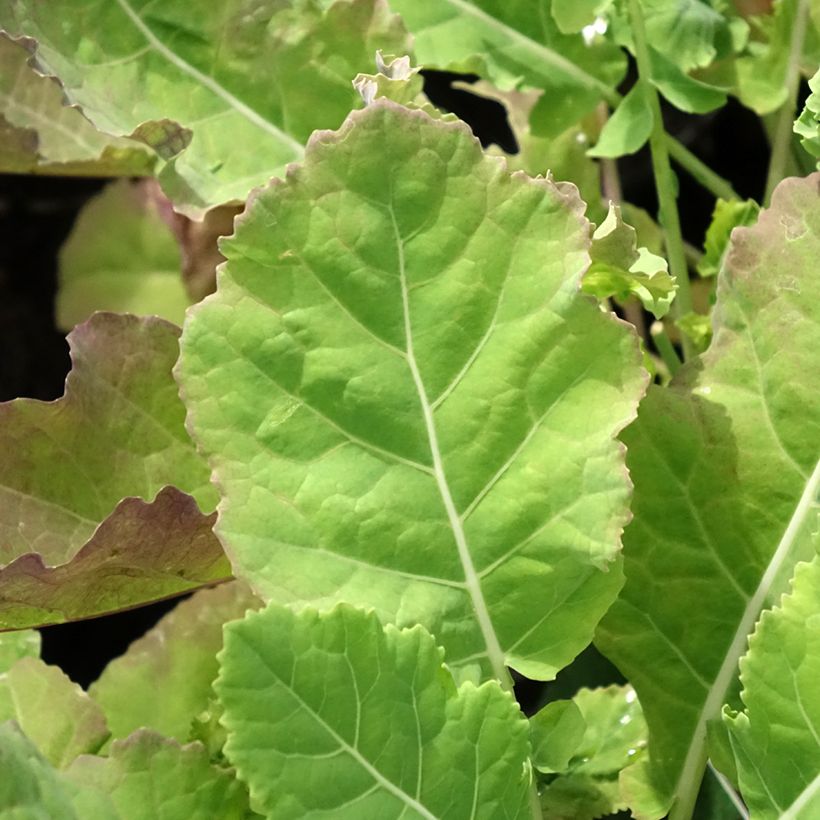

Harvest
Plant habit
Foliage
Other Perennial Kale
View all →Planting and care
The perpetual Daubenton Kale appreciates rich, deep soils that remain slightly moist. It adapts well to clay and heavy soils, whether they are acidic or alkaline. It thrives in sunny locations. Add well-rotted compost in the autumn prior to planting, by scratching it into the soil to a depth of 5 cm (2in), after loosening the soil.
Planting takes place in spring, in April-May.
Dig a hole (3 times the volume of the root ball), place the root ball and cover it with soil. Firmly press down and water to keep the soil moist. Space the plants 1 m (3ft) apart in all directions. Regularly water at the base, but without excess. Install mulch around the base of the plants to conserve water and limit weeding. Add compost on the surface every autumn. Prune in winter.
Perpetual kage naturally propagates through layering. You can also take cuttings in summer, which may be useful if the winter is particularly harsh.
Cultivation
Care
Intended location
-
, onOrder confirmed
Reply from on Promesse de fleurs
Similar products
Haven't found what you were looking for?
Hardiness is the lowest winter temperature a plant can endure without suffering serious damage or even dying. However, hardiness is affected by location (a sheltered area, such as a patio), protection (winter cover) and soil type (hardiness is improved by well-drained soil).

Photo Sharing Terms & Conditions
In order to encourage gardeners to interact and share their experiences, Promesse de fleurs offers various media enabling content to be uploaded onto its Site - in particular via the ‘Photo sharing’ module.
The User agrees to refrain from:
- Posting any content that is illegal, prejudicial, insulting, racist, inciteful to hatred, revisionist, contrary to public decency, that infringes on privacy or on the privacy rights of third parties, in particular the publicity rights of persons and goods, intellectual property rights, or the right to privacy.
- Submitting content on behalf of a third party;
- Impersonate the identity of a third party and/or publish any personal information about a third party;
In general, the User undertakes to refrain from any unethical behaviour.
All Content (in particular text, comments, files, images, photos, videos, creative works, etc.), which may be subject to property or intellectual property rights, image or other private rights, shall remain the property of the User, subject to the limited rights granted by the terms of the licence granted by Promesse de fleurs as stated below. Users are at liberty to publish or not to publish such Content on the Site, notably via the ‘Photo Sharing’ facility, and accept that this Content shall be made public and freely accessible, notably on the Internet.
Users further acknowledge, undertake to have ,and guarantee that they hold all necessary rights and permissions to publish such material on the Site, in particular with regard to the legislation in force pertaining to any privacy, property, intellectual property, image, or contractual rights, or rights of any other nature. By publishing such Content on the Site, Users acknowledge accepting full liability as publishers of the Content within the meaning of the law, and grant Promesse de fleurs, free of charge, an inclusive, worldwide licence for the said Content for the entire duration of its publication, including all reproduction, representation, up/downloading, displaying, performing, transmission, and storage rights.
Users also grant permission for their name to be linked to the Content and accept that this link may not always be made available.
By engaging in posting material, Users consent to their Content becoming automatically accessible on the Internet, in particular on other sites and/or blogs and/or web pages of the Promesse de fleurs site, including in particular social pages and the Promesse de fleurs catalogue.
Users may secure the removal of entrusted content free of charge by issuing a simple request via our contact form.
The flowering period indicated on our website applies to countries and regions located in USDA zone 8 (France, the United Kingdom, Ireland, the Netherlands, etc.)
It will vary according to where you live:
- In zones 9 to 10 (Italy, Spain, Greece, etc.), flowering will occur about 2 to 4 weeks earlier.
- In zones 6 to 7 (Germany, Poland, Slovenia, and lower mountainous regions), flowering will be delayed by 2 to 3 weeks.
- In zone 5 (Central Europe, Scandinavia), blooming will be delayed by 3 to 5 weeks.
In temperate climates, pruning of spring-flowering shrubs (forsythia, spireas, etc.) should be done just after flowering.
Pruning of summer-flowering shrubs (Indian Lilac, Perovskia, etc.) can be done in winter or spring.
In cold regions as well as with frost-sensitive plants, avoid pruning too early when severe frosts may still occur.
The planting period indicated on our website applies to countries and regions located in USDA zone 8 (France, United Kingdom, Ireland, Netherlands).
It will vary according to where you live:
- In Mediterranean zones (Marseille, Madrid, Milan, etc.), autumn and winter are the best planting periods.
- In continental zones (Strasbourg, Munich, Vienna, etc.), delay planting by 2 to 3 weeks in spring and bring it forward by 2 to 4 weeks in autumn.
- In mountainous regions (the Alps, Pyrenees, Carpathians, etc.), it is best to plant in late spring (May-June) or late summer (August-September).
The harvesting period indicated on our website applies to countries and regions in USDA zone 8 (France, England, Ireland, the Netherlands).
In colder areas (Scandinavia, Poland, Austria...) fruit and vegetable harvests are likely to be delayed by 3-4 weeks.
In warmer areas (Italy, Spain, Greece, etc.), harvesting will probably take place earlier, depending on weather conditions.
The sowing periods indicated on our website apply to countries and regions within USDA Zone 8 (France, UK, Ireland, Netherlands).
In colder areas (Scandinavia, Poland, Austria...), delay any outdoor sowing by 3-4 weeks, or sow under glass.
In warmer climes (Italy, Spain, Greece, etc.), bring outdoor sowing forward by a few weeks.






























